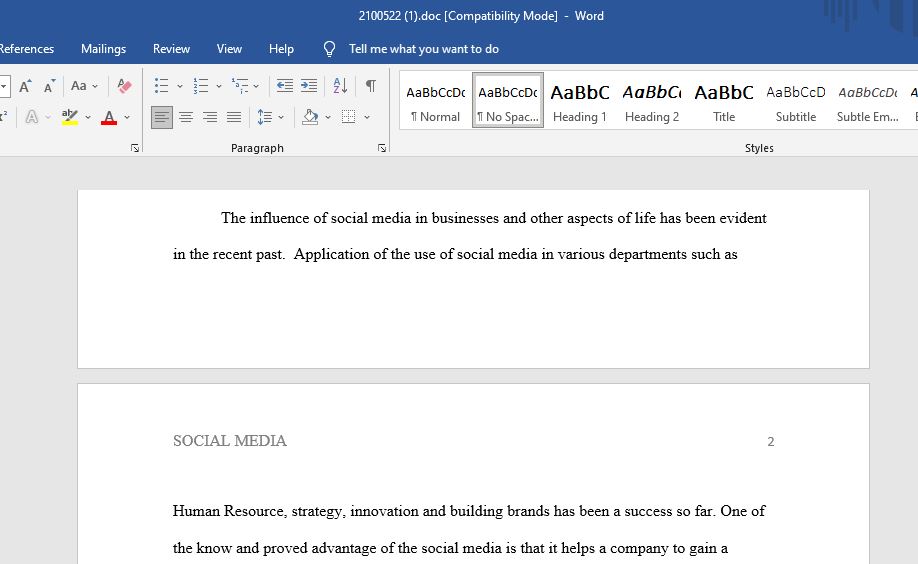Importance of social media’s contribution to organizational brand awareness
Social media is one of the most popular outlets for, essentially, free marketing. Almost everyone has at least one or more outlet for social media, whether it be Facebook, Twitter, Instagram, Youtube, etc. These applications, in a sense, are dominating marketing within the advertising industry due to convenience and ease of access for communication. Social media has also sparked the need for creation of positions within the business infrastructure. Montalvo (2016) denotes a 2011 Monster.com search for “social media manager” which revealed more than a thousand available positions (Montalvo, 2016, Abstract, para 1). Therefore, organizations understand the importance of social media’s effects on consumers so far as to create and hire a position specifically to manage said organization’s social media accounts, in an attempt to enhance transparency.
Montalvo (2016) suggests the importance of social media’s contribution to organizational brand awareness and brand reputation. Social media is certainly a popular avenue for conveying positive attributes of the brand to potential consumers. On the other side of the argument, word of mouth, often published on social media sites can cause harm to the reputation of the company, specifically when negative reviews are made, despite validity playing a role within the remarks. The reputation of products is a direct indication of the reputation of a product. Perhaps one product not satisfying expectations could lead to a diminished consensus of reputability, thus injuring the overall integrity of the business. This would be an excellent occasion for the social media manager of the organization to utilize the particular skillset for which he or she was hired and reconstruct the damaged facets of the company’s image.
Furthermore, Montalvo (2016) interjects the ability of organizations to gain information for future development through SWOT and other analyses via social media platforms. Utilizing free public analysis through trending topics and consumer behavior on certain outlets has revolutionized the aspects of achieving advertising within the organization’s target market, with little to no effort, when compared to previously used data gathering methods. Social media and consumers are in a state of constant evolution, especially regarding trends in what is popular and what is considered outdated. The social media manager can prepare for future straggles by paying close attention to the Web 2.0 based social media platforms. For example, there are many individuals who have become famous via Youtube (many for reasons that remain unknown). Through application of creativity and originality, these individuals have gained vast amounts of popularity through posting videos of themselves portraying talents that are specific to them.
Biblical Integration
Within the Book of Galatians, Paul advises many positive points of conducting oneself through instruction to the Church of Galatia. Chapter 6 speaks to many of the issues plaguing not only social media but our country as well. Galatians 6:4-5 states “Pay careful attention to your own work, for then you will get the satisfaction of a job well done and you won’t need to compare yourself to anyone else. 5 For we are each responsible for our own conduct” (NLT). Using social medias, such as Facebook to compare acts of achievement will always prove to fall short, as there is typically an embellishment on the truth to portray a certain aspect inconsistent with reality, whereas using the Book for the baseline for which success us measured is a far more definitive. As Paul states, we are responsible for our own conduct (Galatians 6:5 NLT). This verse is relevant not only to the day to day personable interactions but also the manner in which business is conducted.
Answer preview:

Words: 290
